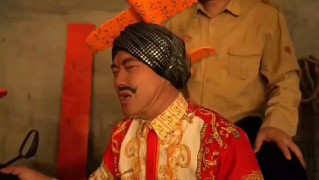US 'set to launch air strikes' on senior Isis terror chiefs in Syria
Source:
http://www.theguardian.com/world/2014/aug/23/us-air-strikes-isis-commanders-syria-considered
US 'set to launch air strikes' on senior Isis terror chiefs in Syria
White House will 'take action' against threats as Turkey comes under pressure to halt flow of jihadists across its border
The United States was said to be considering air strikes aimed at eliminating individual leaders of Islamic State as Turkey came under mounting pressure to stem the flow of jihadists across its border into Syria.
As Washington on Saturday debated extending air strikes into Syria, senior British politicians urged Ankara to act to block recruits from the UK and other countries from entering Syria via Turkey, en route to joining Islamic State (formerly Isis). This weekend large numbers of Isis jihadists were trying to secure greater control of the border area, pushing northwards in armoured trucks looted from abandoned Iraqi military bases.
Isis wants to establish dominance in the area to make it easier for potential recruits to gain safe passage and to allow the movement of vital supplies, including weapons and oil. The route has been used by most of the foreign fighters who have joined the cause, and is believed to have been taken by several hundred of those who have joined Isis from the UK.
US officials said that there was now a "new context" for confronting Isis and cutting off its supply routes following the beheading of US journalist James Foley. In a sign that Washington may widen the field of its air strikes, the White House said it was ready to "take action" against any threat to America in Iraq or Syria. US military officials confirmed on Saturday night it had carried out an air strike against Isis near the Mosul Dam to support Iraqi and Kurdish operations.
Deputy national security adviser Ben Rhodes said before the strike: "If we see plotting against Americans, if we see a threat to the US emanating from anywhere, we stand ready to take action against that threat. We have made it very clear time and again that if you come after Americans, we're going to come after you, wherever you are and that's what's going to guide our planning in the days to come."
According to US military officials cited in the Wall Street Journal, the time needed to mount strikes at high-value targets, such as individual leaders, could be an hour, or "as much as a week". The official added: "If it's based on training camps, we could do that pretty soon." Similar briefings cited by the New York Times suggested officials were discussing the possibility of mounting unmanned drone strikes on Isis leaders, as has happened in Yemen, Somalia and Pakistan.
Islamic State declared itself a "caliphate" in late June and has since added large parts of northern Iraq to territory it already held in eastern Syria.
President Barack Obama authorised air raids in Iraq two weeks ago to help regional Kurdish and Iraqi forces fighting Isis in the country's north. If Washington widened its attacks to extremists in Syria, this would mark a turning point, ending its hands-off approach to the country's civil war.
EU countries have for weeks been putting pressure on Turkey to do more to seal its border. Because Ankara has wanted to oust President Bashar al-Assad from control in Syria, Turkey has kept its border open to jihadists who oppose him, including Isis fighters, and this has allowed the area to become a safe haven over the past three years. While the Turks now say that Isis is no longer welcome, Ankara has not sent in troops in large numbers to patrol the border.
Meanwhile, senior UK politicians called for greater pressure to be exerted on Turkey via the European Union and Nato of which Turkey is a member. Former Liberal Democrat leader Sir Menzies Campbell said that Turkey had a "vital role to play in preventing the free passage of jihadists travelling to join Islamic State".
Campbell, a member of the House of Commons intelligence and security committee, said there should be a "full-scale diplomatic initiative" to draw Turkey closer towards the EU, and moves to offer it a faster route towards membership in return for its full cooperation in the fight against Isis.
Shadow foreign secretary Douglas Alexander said: "People and arms continue to move across the Turkish border with Syria, and Turkey, a Nato ally, has a key role to play in developing a more effective regional response to Isis. The priority now must be for Turkey to offer guarantees to its partners and allies that it is taking the necessary steps to uphold its responsibilities to secure key border areas that represent a vital front in the struggle to contain, disrupt and defeat Isis."
Foreign secretary Philip Hammond has not explicitly ruled out supporting a policy of US air strikes but sources say there is no prospect of the UK taking part. Campbell said UK participation would need the approval of parliament, as well as UN backing.
On Saturday, the UN called for a concerted effort to end the siege of Amerli, a town 110 miles north of Baghdad which is encircled by Isis jihadists. The town is home to 18,000 Turkmen people who, as Shias, are directly targeted by supporters of Isis, who consider them apostates.
Downing Street said that David Cameron, who warned a week ago that Isis was an "exceptionally dangerous" movement which represented a generational threat, would remain on holiday in Cornwall until the middle of this week. After news of the beheading of James Foley broke, he returned from Cornwall to London to chair emergency meetings, but then returned to his family.




































